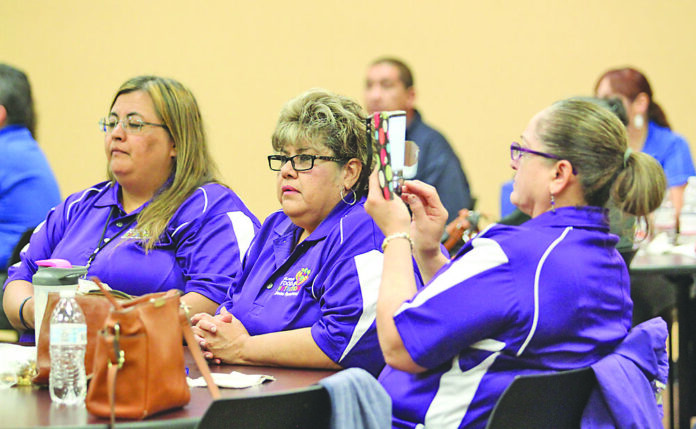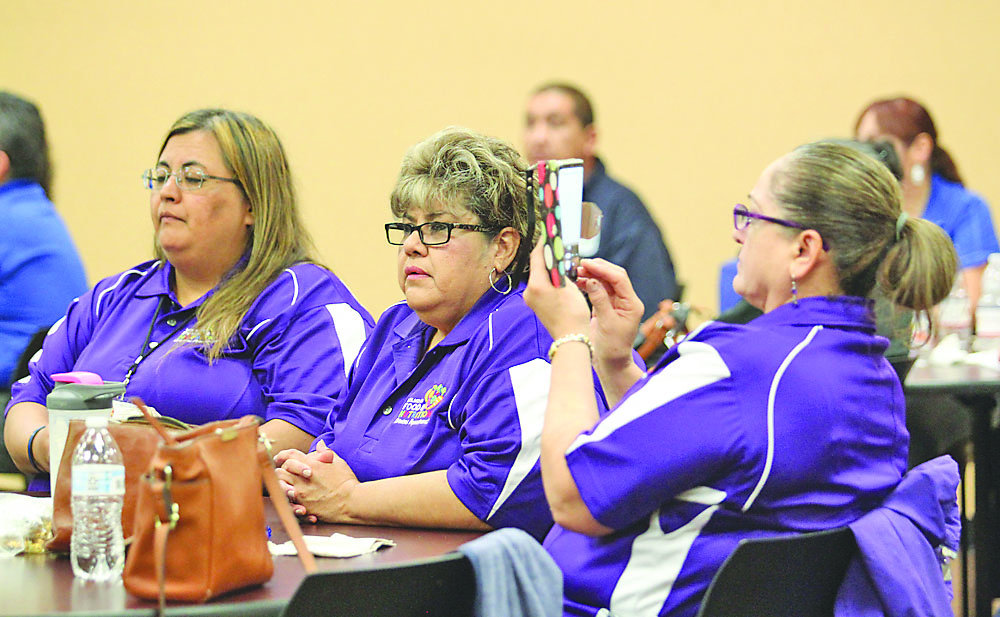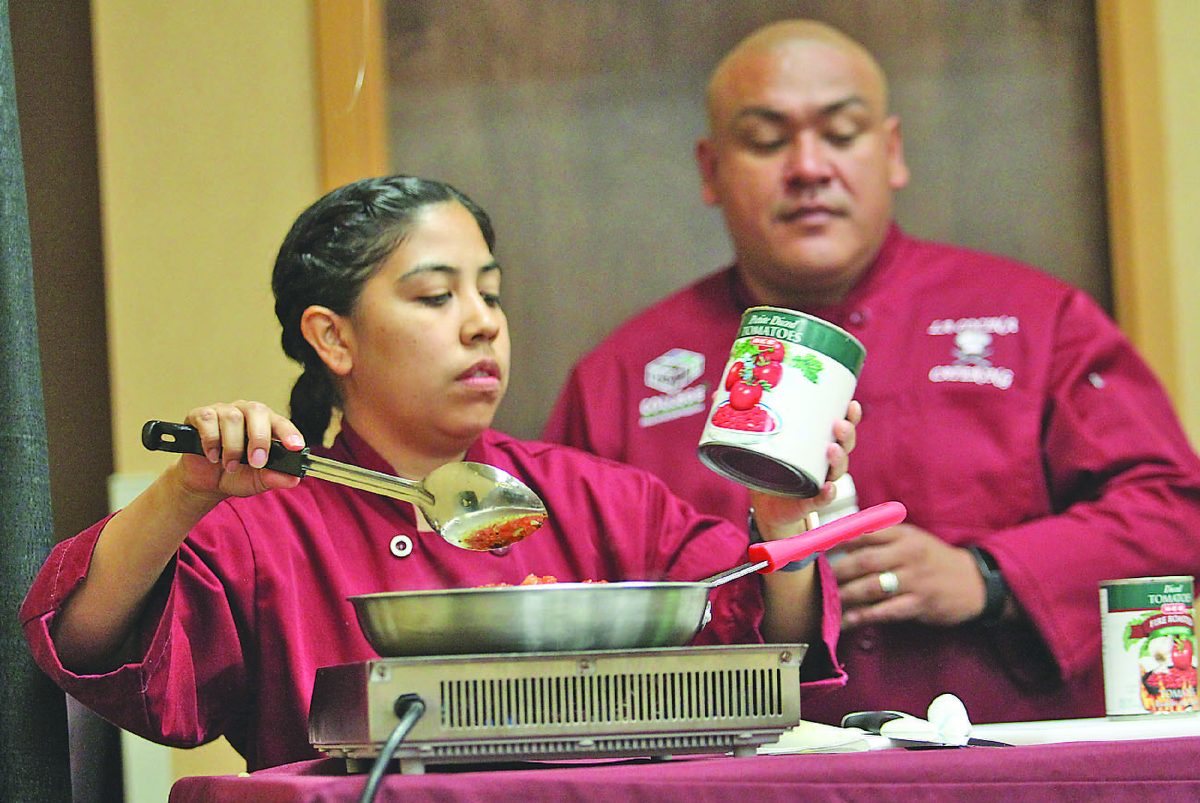
EDINBURG — The aroma of chopped onions, tomatoes and garlic in Italian seasoning permeated throughout the room as the mixture sizzled in olive oil, at a cooking demonstration Thursday at the Region One Education Service Center.
Two representatives from Pharr-San Juan-Alamo ISD food demonstrated three food dishes to the room of food service workers from school districts across the Valley. Rodrigo Puente, PSJA’s food production supervisor, stressed the need for proper safety measures with a focus on reducing sodium intake in providing meals nutritious to schoolchildren.
During Puente’s demonstration for main entrees, he made a school-approved pasta dish — a cavatini with marinara sauce — which meets the state compliant for nutrition.
About 700 food service workers registered for the annual Region One Food and Nutrition Program Summer Conference on Wednesday and Thursday to improve their food preparation skills for students at their campuses. Food and Nutrition Program Director Carmen Ocañas-Lerma said employees from Brownsville to Rio Grande City school districts attended the conference.
Food safety and sanitation, menu planning and school wellness policies were among the other topics during the conference.
Two other dishes, a chicken salad geared for catering and an Argentinean chimichurri sauce, which is similar to Mexican salsa, were also presented as inspiration for food services workers.
“Take it back, play with it, make it fit,” which is possible if they run it by their dieticians who may approve, he said. Dieticians or nutritionists have guidelines for foods to meet, such as fats, sugars and salt before being served, he said.
Kitchen knife-sharpening techniques, obtaining proper products for cooking and an emphasis on food presentation were major points of the demonstration. Another point was understanding that children eat food based on the senses of the eyes, nose and mouth, which is important to make school meals palatable, Puente said.
Unhealthy food and eating habits are a major issue for this generation, he said.
“Everything’s evolving, the restaurants, unhealthy fats, are taking over and when you see the reports, this is the first generation that the parents are going to have to bury their kids because of the way they’re eating,” Puente said.
By starting these eating habits young it will help this problem that exists as a “society in whole,” he said. Often, children say the healthier food tastes like “cardboard,” but that’s because they are used to food with too much salt and other products high in fat, he said.
Regulations in nutrition, has led to schools taking measures such as oven-baking and adapting popular dishes like carne asada into a more healthy versions.
Currently he and his co-workers are looking for alternatives to deep-frying foods in oil while making food that is appealing.
For the audience, he wanted to inspire and demonstrate other ways to provide nutritious meals, Puente said.
“I want them to get out of their comfort zone, do more popular things, more of what the kids are into today, but make it healthier,” he said.
For example, dishes like chicken and waffles, but as a chef, he would have to tweak it in accordance with school nutrition guidelines. Other ideas he mentioned were to mix yogurt with grapefruit to get rid of the bitter taste.
Puente has worked in the food industry for over two decades, and wants the audience composed of food service workers, to understand they shouldn’t be afraid to try new things, he said.
Other cooking demonstrations included working with grains, fruits and catering.
Weslaco ISD Rico Elementary Cafeteria Manager Vicky Valdez has been working in the profession for about 20 years. Other district cafeteria managers for schools were present, and could take back the lessons learned to their campuses, she said.
The presenters provided good communication in answering the audience’s questions, PSJA ISD Carman Elementary Cafeteria Assistant Manager Armando Martinez said. This helps the audience learn and part of the reason he came to the conference is to pass along knowledge to co-workers, he said.
“We’re not just cafeteria workers, we’re educators in the sense that we can teach these kids (about nutrition)… we’re learning how to feed not just us but our children and everybody else,” Martinez said.






